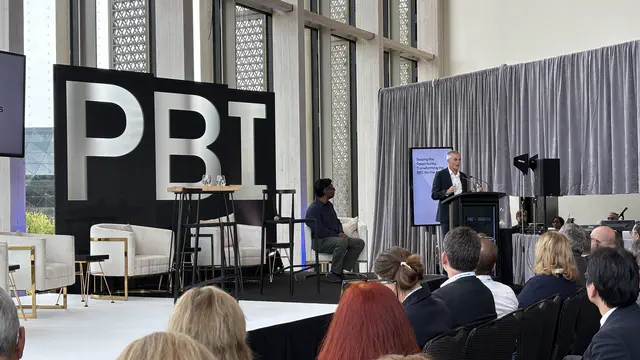On podcast exclusivity - and public service broadcasting

To a public service broadcaster conference in Ottawa, Canada - where there was an underlying set of discussions about podcast exclusivity.
Tomas Hedenius from Swedish Radio was part of the opening session. He told us that they were pulling their most popular shows off third-party apps - so the only way you could listen was to download the SR app and listen there. He proudly told us that when he made that decision, none other than Daniel Ek (the CEO of Spotify) turned up at SR headquarters. Within two hours! The audience were impressed.
Yet, Daniel Ek is on record saying that exclusives, by and large, don’t work for creators. And you can see why - if you are driven by your ability to influence audiences, as public service broadcasting should be doing, exclusivity actively works against you. As one example, a best-selling author moved her podcast to Spotify as an exclusive: and discovered that her book sales went down as a result. So, perhaps Ek was coming to offer his experience to SR, rather than to plead for the content back.
I asked a question - of course I did. Exclusivity may work for your biggest shows, I said, but how will it work for new talent? New shows that people haven’t yet heard of? The answer was refreshing - it won’t work for those shows, he said. Only for the big shows.
Not everyone agrees with SR’s view. The next morning, Guido Baumhauer from Deutsche Welle was part of a panel, and said: “If we are not there (on public platforms), we won’t reach the people”.
Paul Thompson from RNZ was on my panel. RNZ has a wildly different model - making its content available, at no charge, to pretty well any commercial media company in New Zealand. They can republish and reproduce as they see fit (with, I’d imagine, a number of branding requirements).
Here’s what I know - I was the first to produce a streaming radio app, after all, in March 2005, so I do get to occasionally pull rank.
I know that radio station apps are only downloaded by fans. But if you’re not a fan, being bullied into downloading an app just to try that show out simply won’t work.
And however you try to claim otherwise, you will not become a fan of a show if you can’t hear it - easily, on a platform you’re already using.
Laurent Frisch from Radio France was also on my panel. Radio France makes (almost) all of its content available everywhere - but for a short period. After 7 or 28 days, that content is locked in the Radio France app. This seems a good compromise - ensuring everyone hears the content they’ve paid for, but that the fans get access to the archive.
The BBC weren’t on my panel, but they have the opposite strategy - new stuff is held within BBC Sounds, and only after 7 or 28 days does it get released on other third party platforms. So, audiences that are unfamiliar with the content get given luke-warm, outdated material, and this is good because… how, exactly?
Public service purposes are not served by exclusivity like the BBC’s or SR’s. It’s a race in terms of who can lose audiences fastest, in my view. How can you possibly hope to gain new listeners if you hide your content away in an app that non-listeners will never bother with?
And to come back to Daniel Ek’s point: why would any of your content creators want exclusivity? If public service broadcasting has a talent drain - and it does - you won’t combat that by making it hard to hear your talent’s content. Talent will react to that by simply leaving, and using other, less encumbered, platforms. Just ask Emily Matlis and Jon Sopel, who left the BBC for the more creator-friendly world of commercial podcasting.
Exclusivity is incompatible with public service broadcasting, in my view. Leave that to the commercial broadcasters - and then benefit when your content is more available to all of the public who paid for it to be produced in the first place.